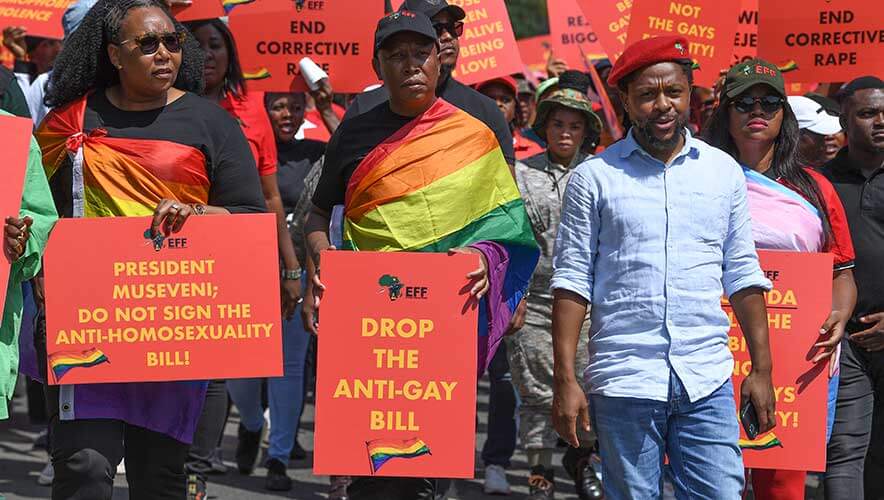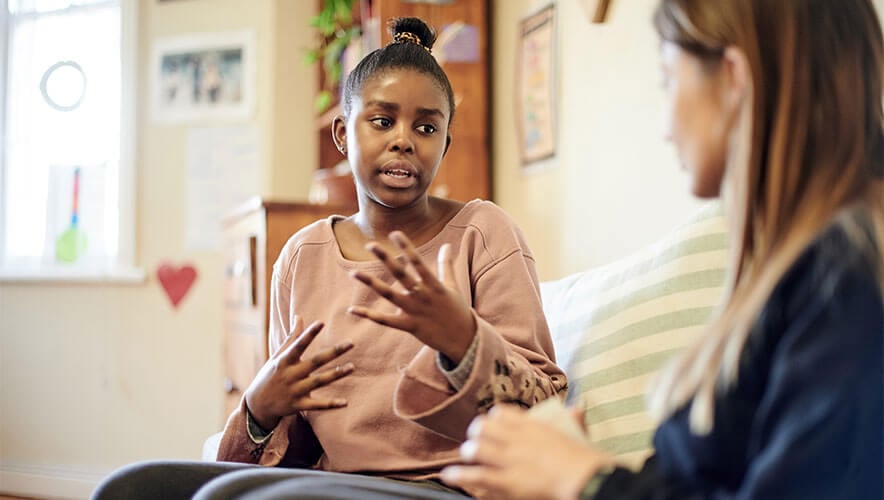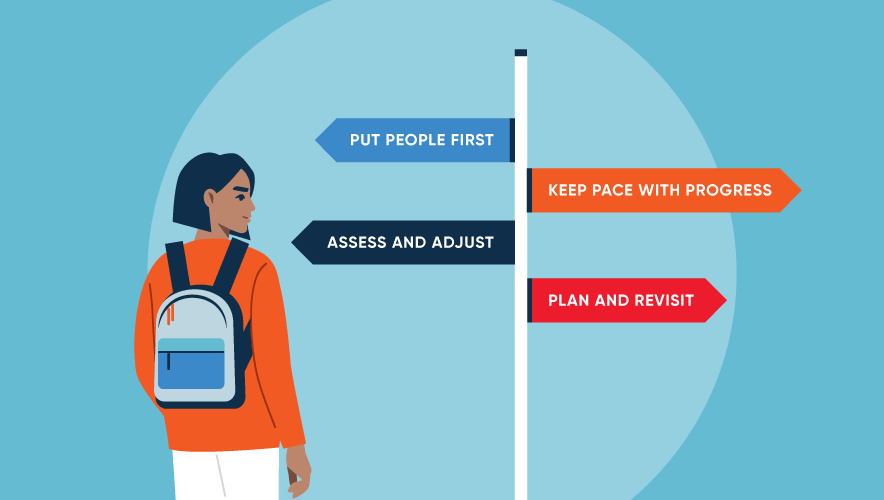Uganda Enacts Law Making Some Same-Sex Acts Punishable by Death
Ugandan President Yoweri Museveni ignored the condemnations from other nations and signed a law that makes gay sex punishable by 10 years in prison, while anyone convicted of “aggravated homosexuality” will face execution.
According to The New York Times, the law defines “aggravated homosexuality” as “acts of same-sex relations with children or disabled people, those carried out under threat, or while someone is unconscious.”
The law was passed by the legislature in March, sparking protests in the country and admonishments from several Western countries as well as human rights organizations. Museveni delayed signing the law, first sending it back to the legislature with the direction that it stipulate between being gay and engaging in same-sex sexual activity. He signed the new law targeting same-sex sexual relations on Monday.
“There’s fear that this law will embolden many Ugandans to take the law into their hands,” Frank Mugisha, the most prominent openly gay rights activist in Uganda, is quoted as saying in the Times. “This law will put so many people at risk. And that creates anxiety and fear.”
The United Kingdom released a statement with harsh criticism of the action: “Democracy depends on the guarantee of equal rights under law and freedom from discrimination for everyone in society. This legislation undermines the protections and freedoms of all Ugandans enshrined in the Ugandan Constitution. It will increase the risk of violence, discrimination, and persecution, will set back the fight against HIV/AIDs, and will damage Uganda’s international reputation.”
U.S. President Joe Biden also released a statement, calling the law a “shameful act” and said it was part of “an alarming trend of human rights abuses and corruption in Uganda.” U.S. Secretary of State Antony Blinken said the State Department will be updating its travel guidance for Uganda, and he also said the United States would consider implementing visa restrictions against Ugandan officials. Among other implications, the review could affect U.S. AID programs and other forms of assistance and investment.
Condemnations also came from the European Union, Norway, United Nations officials, and others.
According to the International Lesbian, Gay, Bisexual, Trans, and Intersex Association, the law makes Uganda the seventh country in the world to make same-sex sexual activity punishable by death, joining Brunei, Iran, Mauritania, Nigeria, Saudi Arabia, and Yemen. Overall, 64 of the United Nation’s 193 countries criminalize same-sex relations, including 59 percent of African nations. Ugandan neighbors South Sudan, Kenya, and Tanzania all criminalize same-sex relations.
LGBTQI+ travelers face unique challenges. The U.S. State Department has an LGBTQI+ Travelers Advisory outlining some challenges and recommend precautions they can take.
“Remember you are subject to the laws of the country where you travel,” the advisory states. “In many countries, consensual same-sex sexual activity, public gathering, or dissemination of pro-LGBTQI+ material—among other things relating to sexual orientation, gender identity, expression, and sex characteristics—may be illegal.”
Of course, the potential for discrimination, hostility, and abuse is not limited to country-level intolerance. Growing backlash against LGBTQI+ individuals and communities has grown in recent years in the United States. Just last week, Target department stores made changes to products and displays celebrating Pride Month, which begins 1 June, as a result of threats of violence against Target staff. And some groups have warned that travel to Florida may be unsafe for LGBTQI+ individuals given the state’s recent actions.
The United Nations’ Free and Equal initiative is designed to raise awareness of injustice and promote equal rights and far treatment of LGBTQI+ people worldwide.
“In recent years, many states have made a determined effort to strengthen human rights protection for LGBT people,” according to a UN website on the issue. “An array of new laws has been adopted—including laws banning discrimination, penalizing homophobic and transphobic hate crimes, granting recognition of same-sex relationships, and making it easier for transgender individuals to obtain official documents that reflect their preferred gender. Training programs have been developed for police, prison staff, teachers, social workers, and other personnel, and anti-bullying initiatives have been implemented in many schools.”
But backsliding is an ever-present risk. “LGBTQI+ people are discriminated against in the labor market, in schools and in hospitals, mistreated and disowned by their own families,” the UN website says. “They are singled out for physical attack—beaten, sexually assaulted, tortured, and killed.”












